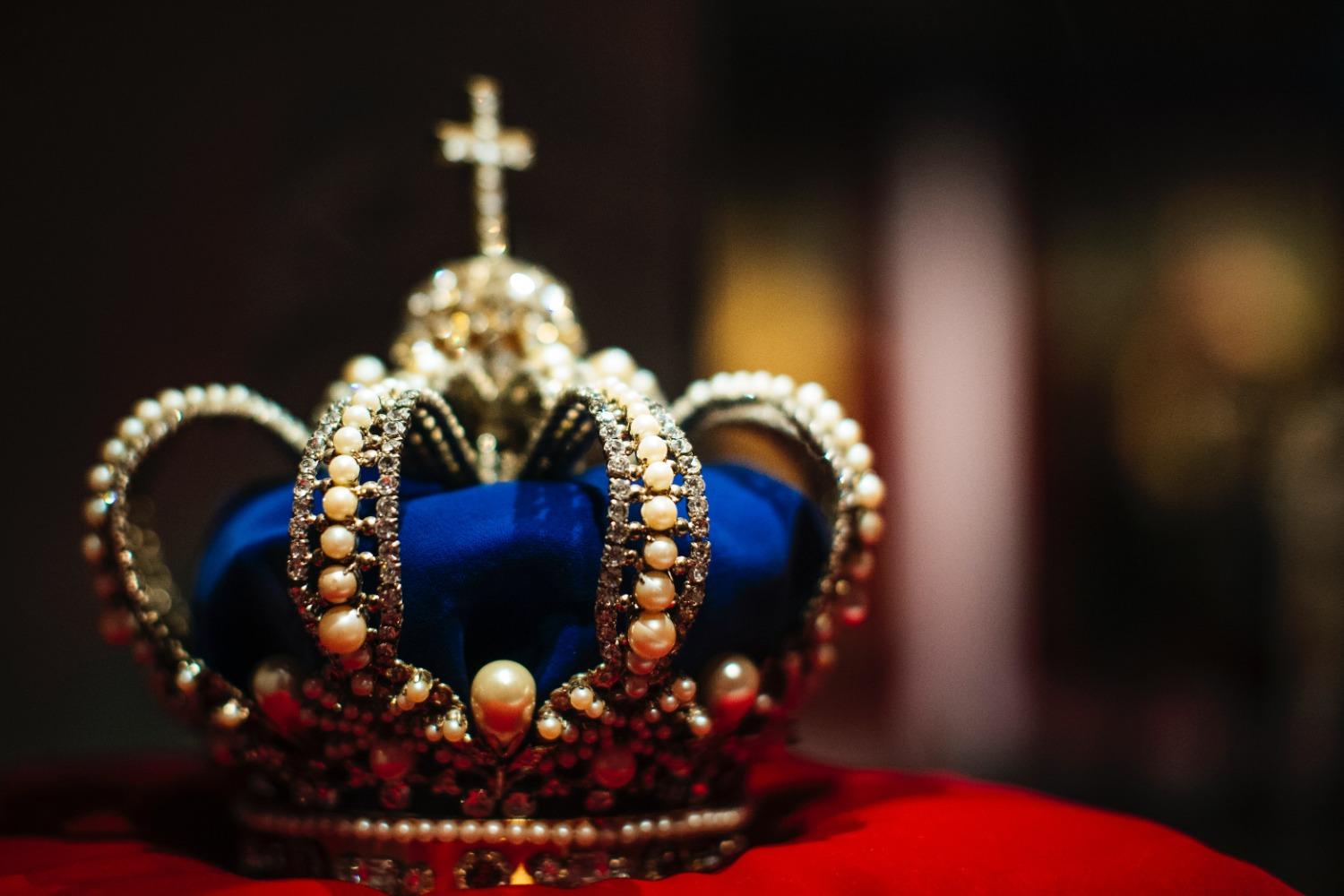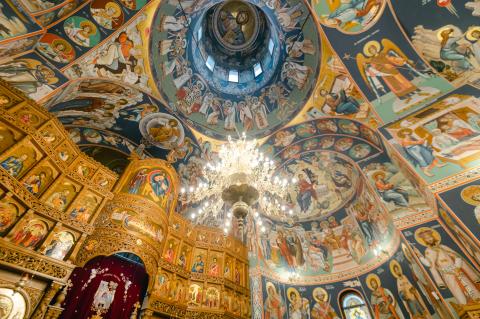
While we often feel the allure of a heroic and stable monarch in books and films, many in the West (and perhaps Americans in particular) have historic anti-monarchical sentiments. How can we think about monarchies?
In Scripture, we are given a glimpse of the complicated pitfalls of kingship. In the Old Testament book of Samuel, for instance, two competing views of kingship are present when the Israelites beg God for a king. On the one hand, their desire for a king arises from an unhealthy desire to be like the nations around them, but on the other hand, a king would more closely unite the nation and could serve as a conduit for God’s rule. The first king, Saul, proves to be a disaster, while the second king, David, shows forth a complicated glory. Under the reign of David’s son, Solomon, the kingship reaches the heights of its worldly glory but also introduces spiritual decay that would infect the reigns of nearly every king that would follow – save only the good king Josiah – until the end of the monarchy. Amidst the backdrop of violent rulers like Herod and foreign occupation in the New Testament, those seeking to put Christ to death howl the most haunting expression of their desire for a king: “We have no king but Caesar!” (The danger of an earthly king obstructing peoples’ ability to recognize God’s kingship could not be more crudely expressed.)
Beyond the Scriptures, ancient Greek philosophers like Plato and Aristotle emphasized the nuances of various forms of government, noting that all systems seem to have their own built-in imperfections. This more subtle consideration of the pros and cons of various forms of government is seldom explored in the modern day. The American myth taught to schoolchildren, for instance, has tended to portray democracy as the only conceivable system for rational individuals, regarding monarchy as an ancient evil to be discarded as humanity evolves.
The recent death of Queen Elizabeth II has shined a light on the great paradox underlying the world’s most visible monarchy today: a beloved monarch with next to no power. By transcending party politics, Queen Elizabeth was able to represent the entire nation over which she reigned. It was by the scepter of the polite and staid disposition of an elder stateswoman that a complicated nation shed many of the trappings of its historic empire and was brought into the post-World War II order.
So what can we conclude by looking at the tradition and the life of Queen Elizabeth? Queen Elizabeth serves as an example of the sense of unity and authority that a monarch (or similarly situated leader) can provide when able to transcend party politics, as the nation is given a common figurehead beyond party loyalties and passing policy initiatives. While all governmental forms have their various pros and cons and exist within a particular context, the monarchic question should at least serve as a reminder to those living in democracies currently awash with partisan rancor of the importance of a unifying power and shared sense of national identity.
As the Commonwealth of Nations enters a period of mourning over the passing of their Queen, Roger Scruton offers a deep-dive reflection into the hard “work” of mourning, from the ancients to Freud and beyond.
At the same time, Catholics are asked to contemplate the Seven Sorrows of the Blessed Virgin Mary today (September 15), the feast of Our Lady of Sorrows. What are these Seven Sorrows?
What rights do parents have to form their children, and are these rights God-given? One author reminds us of the growing challenges faced by parents who want to safeguard their children’s innocence and well-being.
On the topic of parenting, an author asks what it means when parents are excited (or sad) to send their children off to school. An in-depth look at ancient practices of the education of children sheds light on our own day.
The upcoming Catholic Imagination Conference, to be held at the University of Dallas, highlights the important work of forming one’s intellect according to the Catholic Tradition. Such a formation remains rooted in our tradition while allowing the faith to speak in new and fresh ways.
In a meeting with religious leaders in Kazakhstan, Pope Francis decried religion’s role in wars and called for religious leaders to actively work for peace. Metropolitan Anthony, the head of the Russian Orthodox Church’s foreign relations department, was present at the meeting in the place of Patriarch Kirill of Moscow, a vocal backer of Russia’s invasion of Ukraine. While Pope Francis did not directly cite Russia or Ukraine in his remarks to the assembly, he elsewhere urged Christians in the country to pray for “beloved Ukraine.”
In the Church, the latest synod in Germany has concluded its most recent three-day session by voting in favor of several documents that stand at odds with the Catholic Faith.


